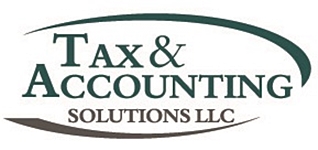Meals and Entertainment Expenses
 Entertainment expenses that are both ordinary and necessary in carrying on a trade or business may be deductible if they meet one of the two tests:
Entertainment expenses that are both ordinary and necessary in carrying on a trade or business may be deductible if they meet one of the two tests:
- The directly related test, or
- The associated test
Directly Related Test
To meet the directly related test, you must show that the main purpose was the active conduct of business; you engaged in business with the person during the entertainment period; and you had more than a general expectation of getting income or some other specific business benefit at some future time.
Entertainment expenses generally are not considered directly related if you are not there or in situations where there are substantial distractions that generally prevent you from actively conducting business such as: meetings at a nightclub, cocktail party, theater, or sporting event.
Associated Test
To meet the associated test for entertainment expenses (including meals), you must show that the entertainment is associated with the active conduct of your trade or business; and directly before or after a substantial business discussion.
Generally, an expense is associated with the active conduct of your trade or business if you can show that you had a clear business purpose for having the expense. The purpose may be to get new business or to promote the continuation of an existing business relationship.
In order to deduct meal and entertainment (M&E) expenses as ordinary and necessary business expenses for income tax purposes, the IRS requires that these expenses be substantiated by adequate records and must include the following information:
- Who – The business relationship of the people involved while incurring the expense
- What – The business purpose of the expense
- When – Date & time
- Where – Location/place incurred & amount of expenses
Most meals and entertainment expenses are subject to a 50 percent limitation. You must keep receipts – without proper documentation no expense may be deducted for tax purposes.
What is Not Deductible
- Meals with a customer, client or employee without a business purpose/discussion
- Club dues and membership fees (e.g. country clubs, golf and athletic clubs)
- Entertainment facilities (e.g. yacht, hunting lodge, cabin, fishing camp, home in a vacation resort)
- Expenses for spouses – you generally cannot deduct the cost of entertainment for your spouse or for the spouse of a customer. However, you can deduct these cost if you can show you had a clear business purpose rather than a personal or social purpose for providing the entertainment
- Lavish or extravagant entertainment expenses (basically unreasonable expenses)
We can assist you in assessing the impact of the tax laws and regulations for meals & entertainment deductions by helping you determine how to appropriately identify and classify M&E expenses. To learn more, please refer to IRS Publication 463.

